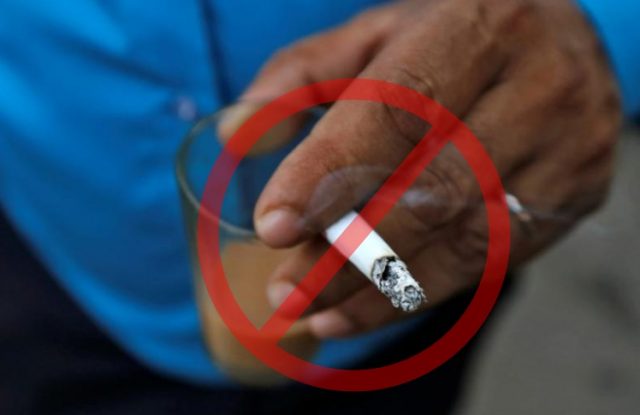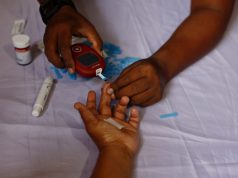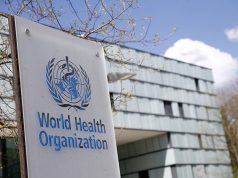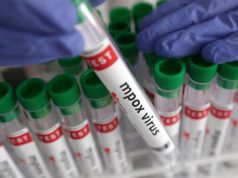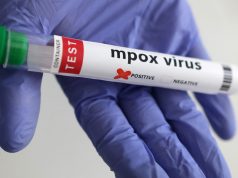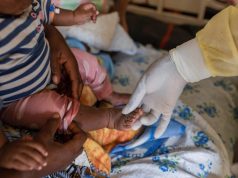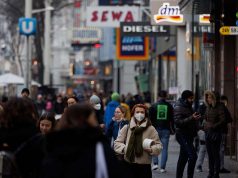MANILA – The World Health Organization (WHO) on Wednesday (May 31) trotted out the chilling statistics of how smoking ravages people, economies and the environment, and warned that the Sustainable Development Goals (SDGs) – a universal call to action to end poverty and create a healthier, more equitable and more sustainable planet, adopted by world leaders in 2015 – are at grave risk of being derailed by high rates of tobacco use.
In the Philippines, where President Duterte recently signed an executive order restricting smoking, some 240 people daily are recorded killed owing to tobacco-related alments.
“Tobacco use has devastating health, social, environmental and economic consequences. It is not only bad for health: the costs of illness caused by tobacco use can ruin families as well as seriously damage whole economies,” said Dr Shin Young-soo, WHO Regional Director for the Western Pacific.
“It is past time to get serious about tackling high rates of tobacco use in countries across this Region: nothing less than our collective vision for a healthy, sustainable and inclusive future is at stake,” Dr Shin said.
Per WHO estimates, the global health-care costs associated with smoking amount to around US$ 422 billion each year. The indirect costs are even greater: lost productivity due to illness and premature death have been valued at more than US $1 trillion per year.
For individuals and families, especially those on low incomes, tobacco use takes money away from a family’s budget for basic needs such as food, education and housing.
“The impact of tobacco-related illness on low-income families can be, quite simply, devastating – plunging households into poverty or greatly diminishing their chances of escaping it,” Dr Shin explained.
In addition to the devastating health impacts, tobacco use poses a series of threats to broader social and economic development, compromising national and global efforts to end hunger, promote sustainable agriculture and economic growth, and combat climate change.
Other chilling data associated with tobacco, as cited by WHO:
• Tobacco farming damages the earth: one tree is lost for every fifteen packs of cigarettes produced.
• Heavy use of pesticides, growth regulators and chemical fertilizers in tobacco farming also aggravate environmental problems: up to 680 million tonnes of discarded waste from global cigarette consumption is generated annually.
• Cigarette butts account for 30–40% of all items picked up in annual international coastal and urban clean-ups.
“While tobacco use is a serious threat to sustainable development, the good news is that we know what to do about it. Strong tobacco control policies work to reduce tobacco use and save lives,” Dr Shin said.
The WHO Framework Convention on Tobacco Control (WHO FCTC) – the world’s first global health treaty – contains a number of interventions proven to work to reduce tobacco use: creating smoke-free public places; increasing tobacco taxes and prices; banning all forms of tobacco advertising, promotion and sponsorship; warning about the dangers of tobacco use; and providing help for smokers to quit. All countries in the WHO Western Pacific Region have ratified the Convention.
Taxation best intervention
The single most effective intervention for reducing tobacco use is taxation: if all countries increased the average price of cigarettes by just US$ 0.80 per pack, 15 million lives would be saved among those who are currently smoking and eventually quit. Half of the lives saved would be from the Western Pacific Region – home to some of the most populous developing nations in the world.
In the Philippines, the resort to higher tobacco tax – with billions of the resulting revenue reaped plowed into health interventions – is deemed a good model for using taxation as both a fiscal and health tool.
It is estimated, meanwhile, that in China alone, a 50% increase in the retail price of cigarettes would prevent 20 million deaths over 50 years and save 8 million people from being plunged into poverty because of tobacco-related medical costs.
“Tobacco control can drive sustainable development, offering a comprehensive and cost-effective solution to the challenges tobacco use poses,” Dr Shin said. “Stronger action to reduce tobacco use is urgently needed. Together, we can continue to reduce tobacco use and promote a healthier, more sustainable world.”
Ubial among tobacco control champions
Every year, Dr Margaret Chan, WHO Director-General, recognizes people and institutions that have made outstanding contributions to the advancement of the policies and measures contained in the WHO FCTC and its guidelines. There are six awardees from each WHO region and two recipients globally of the WHO Director-General Special Recognition Award.
The recipients of the 2017 World No Tobacco Day Awards from the Western Pacific Region are:
• Dr Paulyn Jean B. Rosell-Ubial, Secretary of Health of the Philippines, for her strong tobacco control advocacy in the Philippines and in the Region.
• The Ministry of Health of Vanuatu for developing the largest graphic health warnings in the Pacific, at 90% of both the front and back principal display areas and for pioneering the No Tobacco Cup, which is the Region’s first health-themed national tournament.
• Mr Jonathan Liberman, Director, McCabe Centre for Law and Cancer, Melbourne, Australia, for advancing the WHO FCTC and Australia’s plain packaging measure as well as for establishing the McCabe Centre and WHO FCTC Knowledge Hub.
• Shanghai Municipal People’s Government, China, for helping pass the Shanghai smoke-free law and paving the way for a smoke-free city.
• Dr Tadao Shimao, Honorary Consultant, Japan Anti-Tuberculosis Association, for his leadership in tuberculosis and tobacco control in Japan and strengthening developing countries’ commitment to global health.
• The Department of Health of Tokelau for passing Tokelau Smoke Free – 2020, a strong policy, which has a target by December 2020 to no longer import any tobacco products into Tokelau and outlines a series of targets and actions both at national and local levels towards a tobacco-free Tokelau by 2020.

